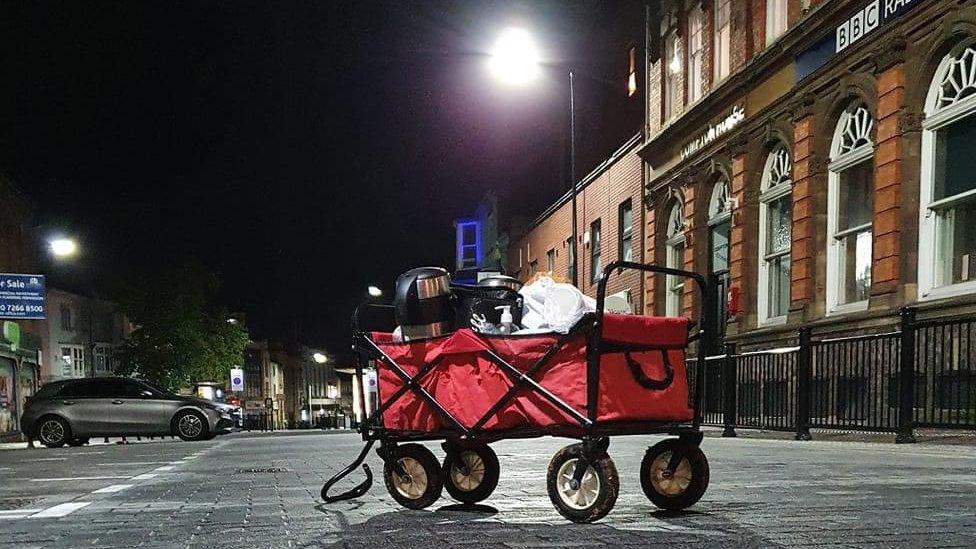Covid support in Stoke-on-Trent 'stopped rough sleeper dying'
- Published
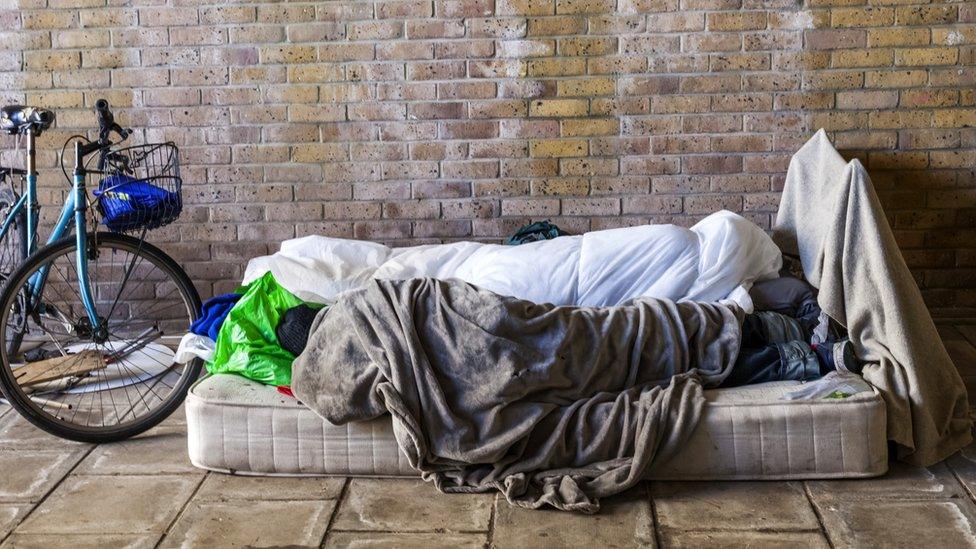
Sixty-six rough sleepers were given accommodation in hotel rooms in Stoke during the first lockdown
A woman who was homeless for several years said she would "probably be dead" if she had not been helped during the coronavirus pandemic.
Marie, who does not want to reveal her real name, was among 66 rough sleepers given hotel rooms in Stoke-on-Trent in the first lockdown.
The council commissioned charity Concrete to help and since March, all but one are still in accommodation.
"I am in such a happier place," said Marie.
Marie, who has learning difficulties, had been homeless since relations with her family broke down.
She slept on benches under a blanket until she was given a place at a shelter in Stoke-on-Trent two years ago.
"Rough sleeping was a nightmare. I used to self-harm, wanted to take my own life, so it is a big change to now," she said.
"If not for the help, I probably would have been dead."
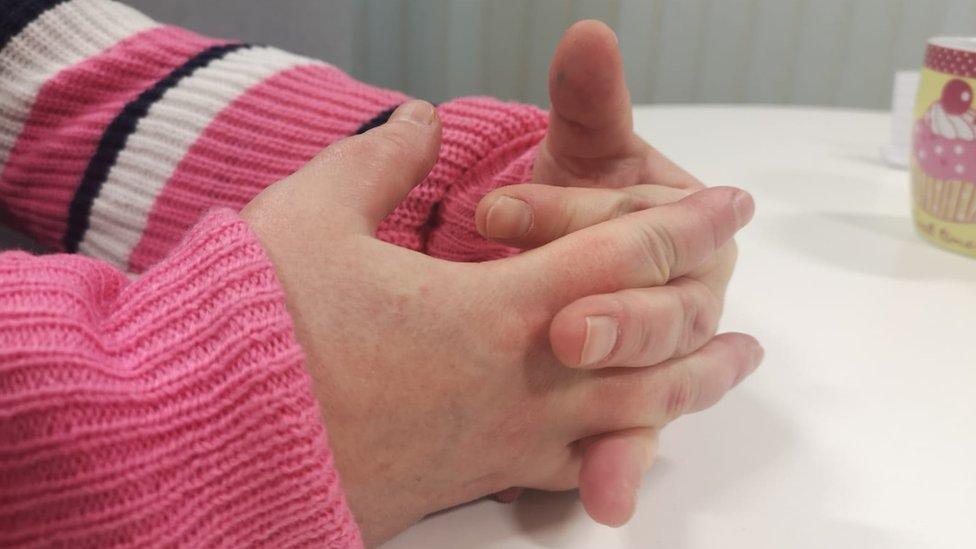
Marie lived on the streets for several years after being told to leave her family's home
Marie moved from the hotel room to live in supported accommodation in the city, stopped self-harming and aims to get her own place.
She also wants to go to college in September to study maths and English and start volunteer work with children.
Marie's story is a reminder to Concrete's head of homelessness, Sarah Forshaw, about why their work is important.
"It is more than bricks and mortar, we have to address the underlying factors to help with their long-term recovery and mental health," she said.
Councils in England started moving rough sleepers into emergency accommodation such as hotels in March when authorities were given £3.2m government funding.

LOCKDOWN LOOK-UP: The rules in your area
SUPPORT BUBBLES: What are they and who can be in yours?
FACE MASKS: When do I need to wear one?
TRAVEL: What are the UK's rules?

As well as the hotel room in Stoke-on-Trent, Concrete set up a hub at the hotel to offer help including a nurse, a mental health expert and addiction services.
George, who also did not want to give his real name, was among the dozens they helped.
He had spent about two decades sleeping rough in the city and been addicted to heroin for 20 years.
But George, 38, said he had been getting support to overcome his drug addiction and was on track to be substance free by January.
"It is very important to me to get off the drugs and speak to my 16-year-old daughter," he said.
"She saw me when I was rough sleeping so it has just been great this year to be able to speak with my daughter and start helping her with her life."
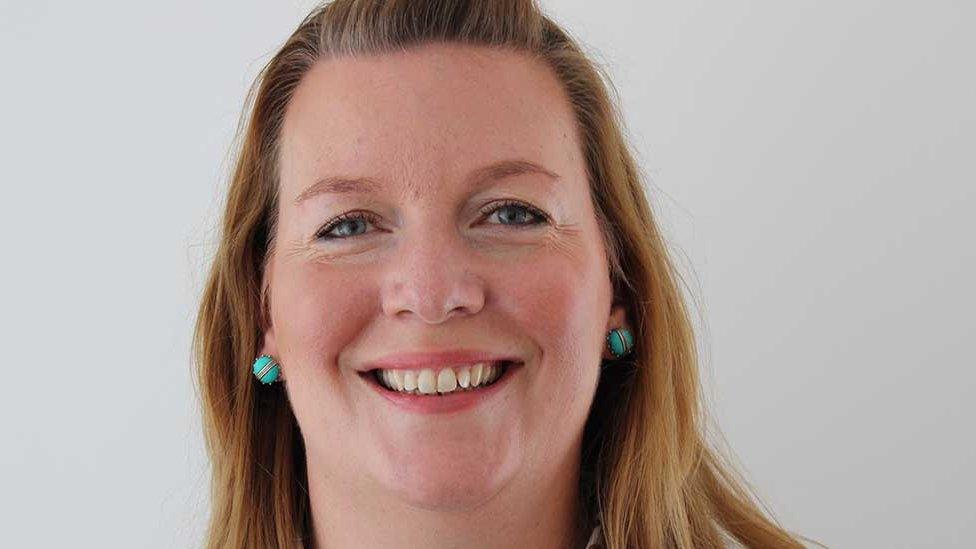
Sarah Forshaw said new people had been forced to sleep rough due to the impact of the pandemic
In October, the city council picked the charity to lead a partnership in a new homelessness strategy to continue the work during the pandemic to support homeless people into permanent homes.
The charity said since 1 October, accommodation had been found for more than 100 people but Sarah Forshaw said they had also seen people new to rough sleeping due to the impact of coronavirus.
"We are seeing family and relationship breakdowns, seeing hidden homeless, sofa surfers, who have been asked to leave houses due to the pandemic," she said.
"As quick as we are resolving one situation, we are seeing new cases."

Follow BBC West Midlands on Facebook, external, on Twitter, external, and sign up for local news updates direct to your phone, external.
Related topics
- Published17 December 2020
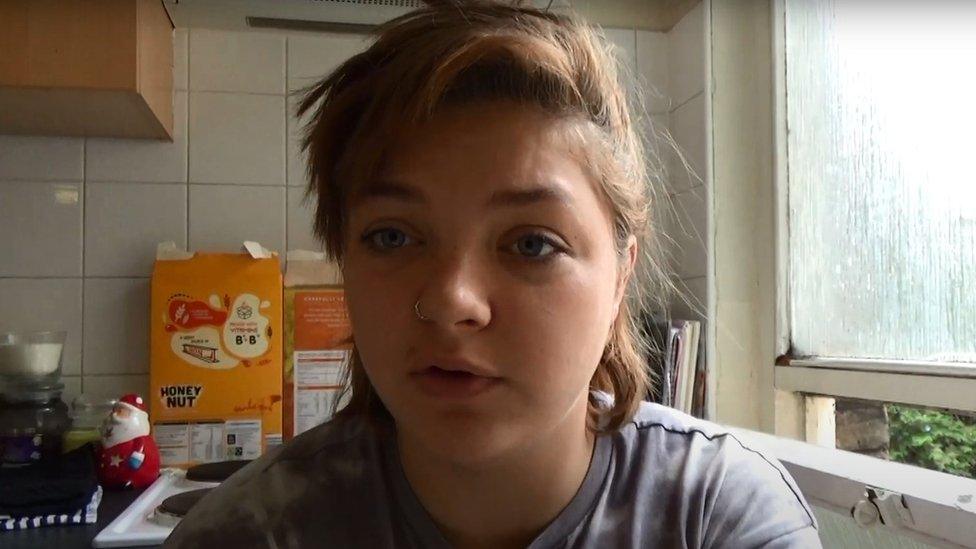
- Published17 December 2020
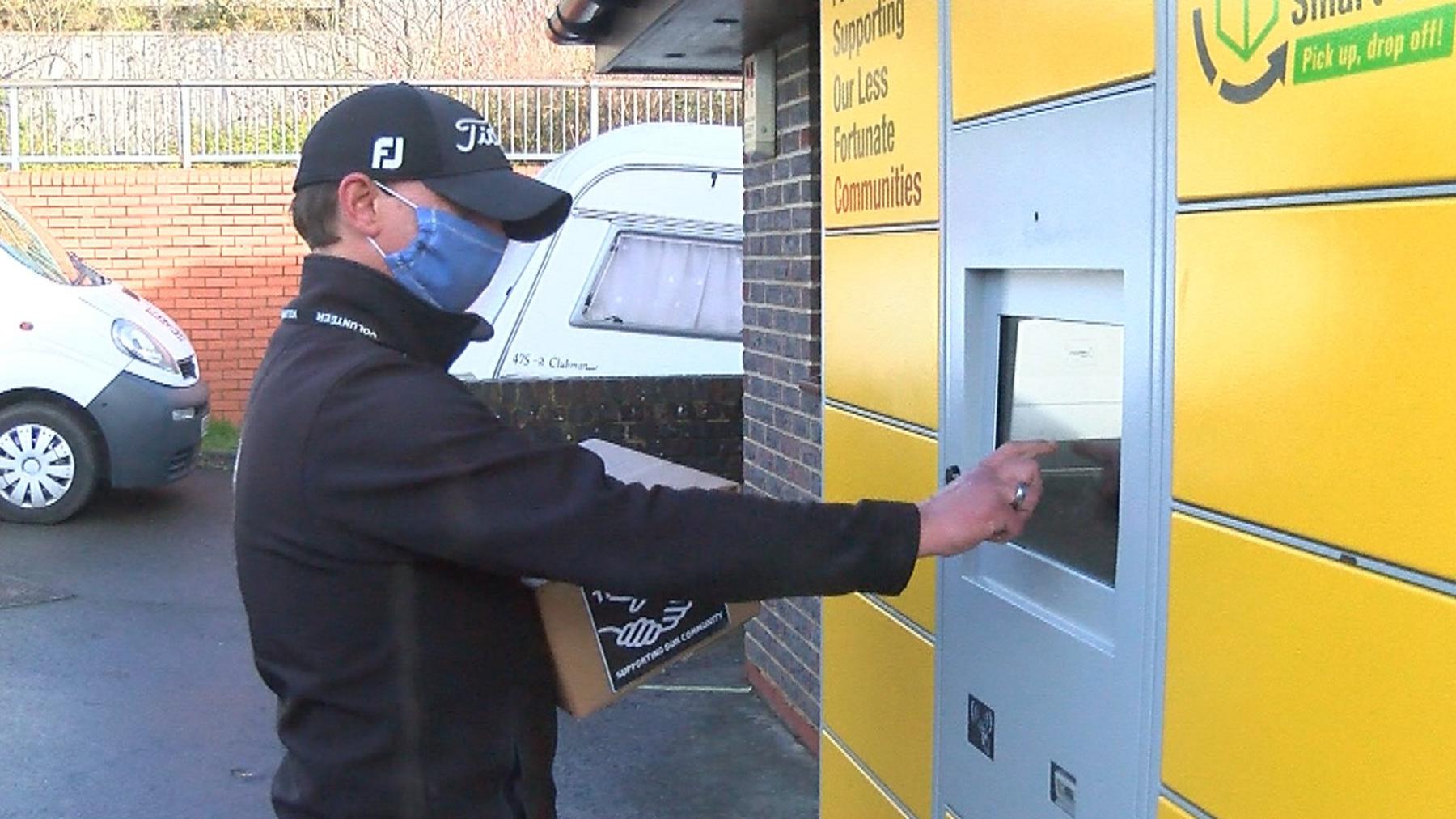
- Published7 November 2020
